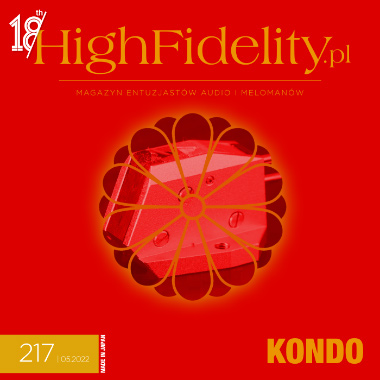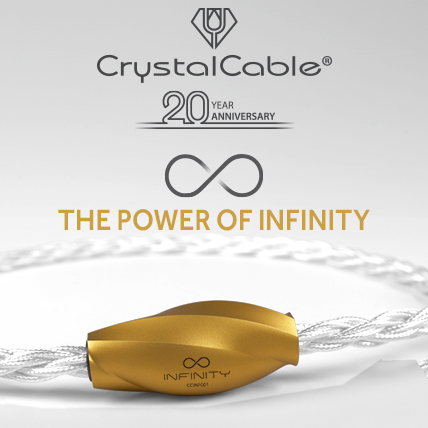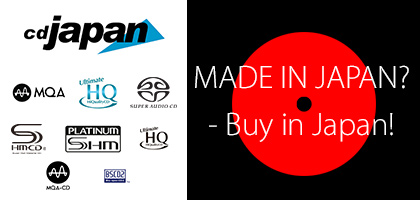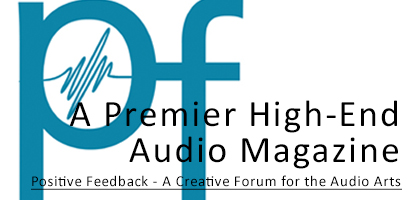No. 261 February 2026
- COVER REVIEW: TECHDAS Air Force IV ⸜ turntable » JAPAN
- RECORDING TECHNIQUE ⸜ music: 3M DIGITAL AUDIO MASTERING SYSTEM Part 2 || MUSIC » USA
- MUSIC ⸜ review: ARNE DOMNÉRUS, , Jazz At The Pawnshop, Proprius/AudioNautes Recordings MQA-CD Crystal Disc ⸜ 1977/2025 » SWEDEN / ITALY
- REVIEW: CIRCLE LABS AS100 ⸜ integrated amplifier » POLAND
- REVIEW: SHANLING EC Zero T ⸜ MQA-CD player • mobile » CHINA
- REVIEW: FEZZ AUDIO Sagita Prestige Evo & Olympia Evo Mono ⸜ linestage & power amplifier • monaural » POLAND
- MICRO REVIEW: ACOUSTIC REVIVE PS-DBLP ⸜ record clamp / stabilizer » JAPAN

|
Editorial
text WOJCIECH PACUŁA |
 |
No 217 June 1, 2022 |
|
WHAT’S A JOURNALIST FOR?

It was a long time ago, but if you asked any internet user today what he thought of it, I'm sure many would agree. Perhaps it would be even easier for them, because today we would probably talk about an online magazines and journalists publishing content in this medium, not necessarily in printed ones. Where does this attitude come from? - As you can, quite safely, assume it depends who you ask. But this is a flawed assumption, because it assumes the independence of each of these opinions and an extremely optimistic one, I would even say naive faith that people in their mass are guided only by the reason and free will. And yet, what is probably clear, this is not true. Psychology says that we are driven by emotions that are part of something greater than ourselves. As a result, we are extremely susceptible to suggestions, even if it seems to us that it is us who makes choices. ⸜ A CURSE OF FREEDOM Am I exaggerating? - do you not know the history of Cambridge Analytica, a company that uses knowledge about Facebook users, whose data allowed for micro-targeting ads and information and which, with a high, certainly bordering certainty, probability helped Donald Trump win the presidential election, and also leave Great Britain from the European Union? Interestingly, all of those subjected to this suggestion claimed to be making their own decisions. As it turns out, the less free press in a country, the higher the level of autocratic control and the less freedom is there. This is a universal rule. The less educated people have to say in a given country, the easier it is to manage the others. Please pay attention to who is Russia's number one target in the occupied territories of Ukraine? And do you remember who was killed in Poland as soon as it was possible - first in 1939, by the Nazis, and a year later, by the Soviets? They killed the elites. Not because Nazi Germany or the Stalinist Soviet Union did not like the elites, but because they were afraid of them. Today we are dealing with the constant instilling disgust for elites. Interestingly - it is done in the name of freedom. CLIFF KUANG and ROBERT FABRICANT write about this paradox of freedom/enslavement:
As they note, Facebook created the twenty-first century digital equivalent of Levittown neighborhoods: "a place of artificial homogeneity, not diversity, where users are surrounded by virtual neighbors with exactly the same views as their own" (p. 275). And yet Facebook, like the Internet itself, was created to connect people, to give people unlimited access to information. The opposite happened and it was because the creators of social media sought to build a medium that was as user-friendly as possible. And because they wanted to make money from it - to earn without limits. 
On the surface, everything seems beautiful, friendly, helpful, for us, users. However, as the mentioned authors note, the ultimate goal of technology created for consumers has always been to smooth out all the "roughness of our lives", so that every smallest detail becomes so temptingly easy to use that the solutions used in it seem the only right and even possible ones - to make them "inevitable" (p. 281). Unfortunately:
So due to their ultra-friendliness they have become "golden cages" in which users "produce" information, and thus money for the owners. This has been noticed a long time ago, but it is knowledge that only a few have accepted, the vast majority prefer to close their eyes and pretend nothing is happening. Alan Cooper, an eminent designer, author of the persona concept says clearly:
|
And now - it happened to a large extent, or so I read it, by the rejection of external authority in the name of the "group authority." This is the first thing. And secondly, by identifying yourself and your "friends" from a given bubble with journalists. According to the current definition, a journalist is anyone who publishes materials, for example on the Internet. Going further - each website belonging to such a person equals a "magazine". And yet, as the Polish prominent philosopher JOLANTA BRACH-CZAINA writes, it is the result of a deepening the error of anthropocentrism:
The philosopher was concerned with general matters, but I also read her entry in the context of what we are talking about. The rejection of the hierarchy, which is assumed to be a very good idea, ends up with being lost. Putting oneself in the role of the subject of events, their commentator and, at the same time, a judge, liberating in the assumption, leads to an overproduction of lies and a deficit of truth. Hence the path to abuse is already very short, just a frog's leap away. 
This is as evident in audio as elsewhere. As we have noticed with our friends from other magazines around the world, for several years now there have been more and more sites on the Internet that were created for the sole purpose of advertising products but pretending to be magazines. Often these are mere aggregators in which human-assisted artificial intelligence processes the content available to simulate new articles. But just as often, these are human-led, purely for-profit sites that feed people with targeted lies. As it seems, a journalist is needed more than ever today. It is a kind of "membrane" between the world and the recipient. Its task is to filter information, give it the appropriate form and comment it. Let's put an end to idiocy like "anyone can write." It's not true, not everyone can, and most shouldn't. Let's finally stop pretending that we can all be journalists. It's a lie. This is what they want you to think, I mean those who want to rule us and earn money using us. And only when we choose the truth will we be able to finally stop struggling. Let journalists do journalism and let the readers read. It is up to us, the publishing industry, to inform our friends and supporters on the other side of the computer screen, display or in front of a printed sheet of paper about what is valuable and why it is worth taking a look at. It is not only an obligation, but also a great responsibility for which we should be held accountable by you. ⸜ THE 18TH ANNIVERSARY OF THE HIGH FIDELITY This is what we have been doing at "High Fidelity" for eighteen years. May 1st is the 18th anniversary of our magazine. It was the day when Poland joined the European Union, so for me it has a double value. Since then, we have been trying to tell you about the audio world in the best, most reliable and useful way possible. We make mistakes, we make wrong decisions. But that's because we are human. And as people we try to correct mistakes, find the right path, talk about mistakes. I would like to thank my co-workers, without whom this magazine would not be as it is, and perhaps it would not exist at all - BARTOSZ ŁUCZAK, the owner of the Piksel Studio, who prepares the graphic site for you, MAREK DYBA, whose passion and experience are an invaluable contribution to us, and the love of vinyl and SET amplifiers is a refreshing reminder that not everything new is automatically better. I would also like to thank Mrs EWA MUSZCZYNKO, who, together with Marek Dyba, tirelessly translates the magazine into English. Finally, a low bow to the members of "High Fidelity" cooperating societies - the KRAKOW SONIC SOCIETY and the PLICHTÓW SONIC SOCIETY "PSS Społem" run by Witek KAMIŃSKI: you are an amazing inspiration for me! And finally, thank you for the companies that advertise in HF: manufacturers, distributors and audio shops - without you this magazine would simply not exist. I also send love to our friends in other magazines that also publish our reviews - the American POSITIVE FEEDBACK and the German HIFISTATEMENT.net with which we award STATEMENT in High Fidelity awards. But the most important thing is our deepest respect for you, the READERS. It is even difficult for me to grasp how much we all owe you in "High Fidelity". To your words of encouragement, inspiration, but also criticism. It is thanks to you that a new website dedicated to new products was developed last year - the HIGH FIDELITY NEWS. We bow down to all of you, we send our hugs and kisses - you’ve just witnessed the "High Fidelity" becoming an adult :) Thank you! ■ WOJCIECH PACUŁA |
About Us |
We cooperate |
Patrons |
|
Our reviewers regularly contribute to “Enjoy the Music.com”, “Positive-Feedback.com”, “HiFiStatement.net” and “Hi-Fi Choice & Home Cinema. Edycja Polska” . "High Fidelity" is a monthly magazine dedicated to high quality sound. It has been published since May 1st, 2004. Up until October 2008, the magazine was called "High Fidelity OnLine", but since November 2008 it has been registered under the new title. "High Fidelity" is an online magazine, i.e. it is only published on the web. For the last few years it has been published both in Polish and in English. Thanks to our English section, the magazine has now a worldwide reach - statistics show that we have readers from almost every country in the world. Once a year, we prepare a printed edition of one of reviews published online. This unique, limited collector's edition is given to the visitors of the Audio Show in Warsaw, Poland, held in November of each year. For years, "High Fidelity" has been cooperating with other audio magazines, including “Enjoy the Music.com” and “Positive-Feedback.com” in the U.S. and “HiFiStatement.net” in Germany. Our reviews have also been published by “6moons.com”. You can contact any of our contributors by clicking his email address on our CONTACT page. |
 



|
   |







 N THE PAST, BEFORE I STARTED TO WORK as a journalist, I heard several times from one of the audio distributors that audio magazines were "leeches" and "parasites". He said it deadly serious and pissed off. Which did not prevent him from partying, having fun, laughing and joking with some of these "parasites", seeking their favor at the same time.
N THE PAST, BEFORE I STARTED TO WORK as a journalist, I heard several times from one of the audio distributors that audio magazines were "leeches" and "parasites". He said it deadly serious and pissed off. Which did not prevent him from partying, having fun, laughing and joking with some of these "parasites", seeking their favor at the same time. (…) Facebook allows you to spread not so much information as affirmations. Thanks to the "Like" button, created by Rosenstein and Pearlman, and algorithms that track likes, we have been surrounded by a comfortable, tight cocoon of media messages in line with our ideology. The entry wrongly suggesting that the Pope supports Trump's candidacy, was shared 868,000 times, meanwhile an article that corrects this imaginary story only 33,000 times.
(…) Facebook allows you to spread not so much information as affirmations. Thanks to the "Like" button, created by Rosenstein and Pearlman, and algorithms that track likes, we have been surrounded by a comfortable, tight cocoon of media messages in line with our ideology. The entry wrongly suggesting that the Pope supports Trump's candidacy, was shared 868,000 times, meanwhile an article that corrects this imaginary story only 33,000 times.


